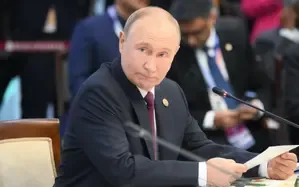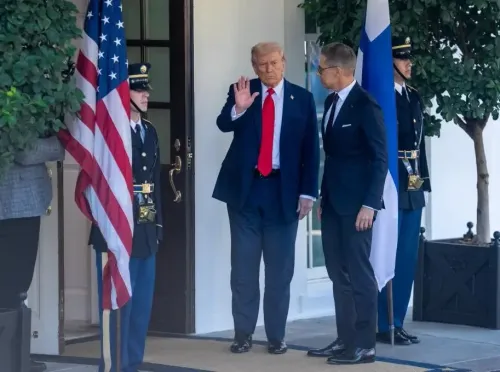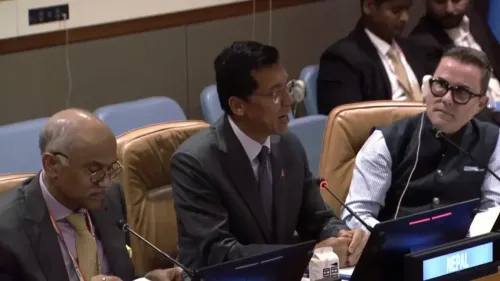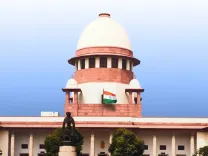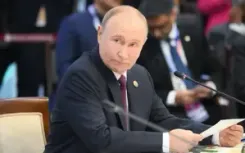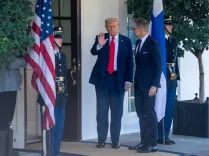Kuwaiti Foreign Minister and GCC Leader Visit Lebanon, Commit to Assistance
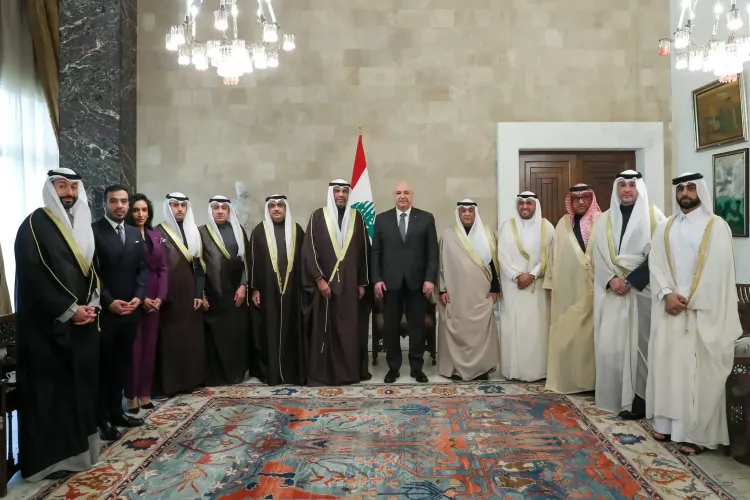
Synopsis
Key Takeaways
- Kuwait and GCC committed to aiding Lebanon.
- Importance of Arab unity emphasized by President Aoun.
- Potential development initiatives contingent on reforms.
- Shift in Lebanon's political landscape observed.
- Hezbollah's influence appears to be waning.
Beirut, Jan 24 (NationPress) The Foreign Minister of Kuwait and the Gulf Cooperation Council (GCC) Secretary-General arrived in Lebanon on Friday, extending their pledges of support and solidarity. This comes as the war-torn nation strives to rebuild relationships with Gulf nations and tackle an economic crisis.
During their visit, Abdullah Ali Al-Yahya, Kuwait's foreign minister, held discussions with Lebanese President Michel Aoun at Baabda Palace in Beirut. Al-Yahya reiterated Kuwait's dedication to assisting Lebanon across multiple sectors, as stated by the Lebanese presidency.
He highlighted the significance of solidarity and called for the reactivation of collaborative committees to confront Lebanon's escalating challenges.
Accompanying Al-Yahya was Jasem Mohamed Albudaiwi, the GCC Secretary-General, who pointed out that this visit followed an extraordinary GCC meeting focused on the crises in Lebanon and Syria.
Albudaiwi underscored the GCC's unwavering backing of Lebanon's sovereignty, emphasizing the essential need for both regional and international cooperation, as reported by Xinhua news agency.
He also introduced a Gulf-supported development initiative aimed at aiding Lebanon's economic recovery, which is contingent on the enactment of significant reforms.
President Aoun expressed his appreciation for the support from Kuwait and the GCC, stressing the significance of Arab unity in overcoming the country's challenges and reaffirming Lebanon's commitment to enhancing relations with its Gulf neighbors.
This visit by Al-Yahya and Albudaiwi follows a significant visit on Thursday by Saudi Foreign Minister Faisal bin Farhan Al Saud, marking the first such visit in 15 years.
These diplomatic exchanges reflect Lebanon's ongoing efforts to strengthen its ties with Gulf states as its new government grapples with a struggling economy, profound political divisions, and the repercussions from the recent conflict with Israel.
Aoun was elected as Lebanon's President on January 9, filling a vacancy that lasted nearly two years due to severe political rifts. Shortly after, on January 13, Aoun appointed Salam, the former President of the International Court of Justice in The Hague, as Lebanon's new Prime Minister, assigning him the task of forming a government.
These developments are largely interpreted as indicative of Hezbollah's diminishing influence in Lebanon, signifying a potential transformation in the country's political dynamics.


